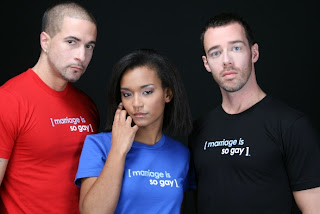
It's a great week for reader recommendations, as Alert Reader Drew points us to this piece on trans issues and all-women's colleges from Insider Higher Ed. The piece is titled "Women's Colleges and Ex-Women," which I suppose is meant to be funny, but kind of hits me wrong. Trans men aren't "ex-women," you know?
The main issue this article addresses is how all-women's colleges should handle it when some of their students transition and identify as male. Of course, we know that transitioning doesn't require people to transition from female to male or from male to female - there are all sorts of other points on the gender map a person could pick, and it can change over time. This article doesn't go into those issues at all, though. This appears to be the central question:
What place do gender roles have at a decidedly feminist institution? Or at any women’s college, for that matter?
This is a thorny issue for the institutions - as the article points out, questions include what to do about sports, bathrooms, dorms, professors who won't use a student's preferred name, gender-neutral housing, etc. But they need to figure it out, and quick. As one of the people interviewed in the article says, higher education should be at the cutting edge of all issues of diversity and inclusivity. I agree with this sentiment wholeheartedly, but haven't found it to be true in my experience.
Anyway, my thought is this: Are single-sex institutions something we should have? I realize that this is a big question and one that implies completely changing some prestigious, historic institutions. But I think we should just ask the question and walk through it. I know that some woman-identified people prefer an environment consisting entirely of only woman-identified people, but... how realistic is this? Trans and genderqueer people might not feel they belong at either all-women or all-men schools, and while they could go to schools that aren't gender-based, what if they don't figure themselves out until college? I mean, plenty of people don't, right? And what is a school going to do if someone identifies, brilliantly, as a queer trans femme dyke? If gender is something we perform and not something we are, can we have schools with admissions based on gender? Presumably Mt. Holyoke wouldn't turn down someone for being a boyish/masculine/tomboy-type woman - for not performing "woman" in the culturally prescribed way, which I'm not convinced anyone really can anyway - so where does the line get drawn? What I'm wondering is, should there be a line at all?
Maybe the answer is for women's colleges to admit anyone who self-identifies as woman/female/femme/genderqueer and not ask any more questions. And men's colleges can use similar criteria. All schools should have gender neutral housing [which the University of South Florida is doing!] and bathrooms, and all faculty and TAs and residence hall advisers should learn about trans and queer issues, which would improve student life for so many kids.
As someone who works in higher education, at least for now, and who has a lot of investment in queering academia, I think these conversations are critically important. Accessibility to higher education means being fully inclusive of all kinds of people, and so trans and genderqueer people need to feel safe and happy at their institutions, and see that their identities are just as valid and honored as those of self-identified cis women and men.













